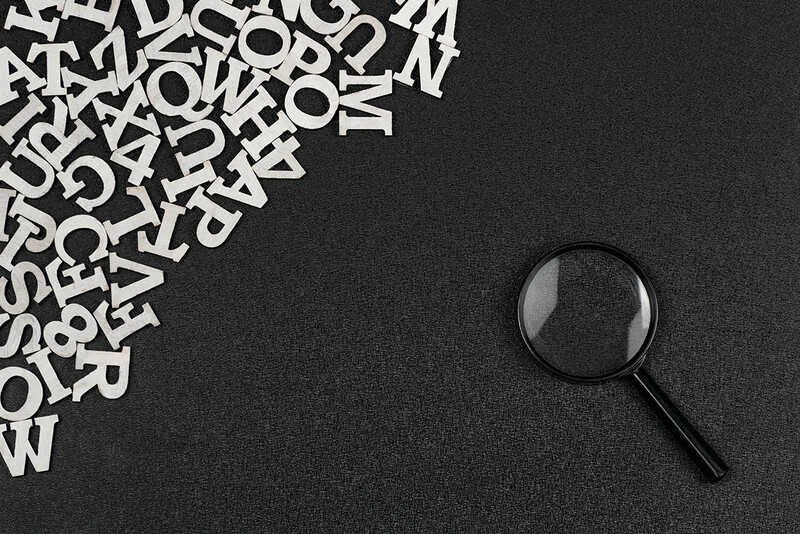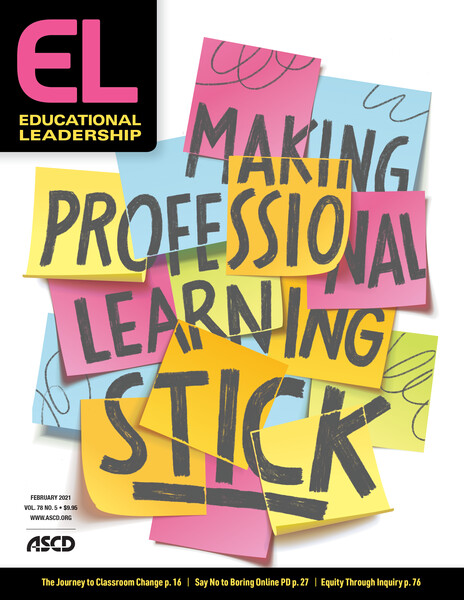February 1, 2021
•
5 min (est.)•
Vol. 78•
No. 5Rooting Out Inequity Through Collaborative Inquiry
Schools must step up and become engines for equity.

We, as a teaching profession, do not yet know what we need to know to ensure that each and every student acquires the education they deserve. Sure, many students do demonstrate mastery on assessments, produce clever and beautiful products of their learning, or put their hard-won knowledge and skills to use in pursuit of fulfilling careers. But these outcomes are not widespread, and the demographic patterns in who "succeeds" are not random. Students with Black and brown skin—many of whom are from the same few zip codes, speak first languages other than English, or are from low-income families—are less likely to achieve these outcomes. Our system is currently stuck in patterns that reproduce inequity.
Educators do not want to leave children behind: If we knew what to do, we would already be doing it. We need to learn our way to more equitable schools. Yet too many professional learning experiences engage educators in merely recycling the same ideas that have led us to where we are today. What we really need to do is grow new ideas that can produce greater shifts. We need a stronger and more timely system for learning together from the test kitchens of our own classrooms. We need professional learning experiences that help us to get smarter collectively, as a profession.
Many educators are already informally engaged together in classroom-based research. They help each other interpret and respond to formative assessment results, unpack the misconceptions represented in a student's response and address them, or redesign a unit plan based on identified patterns of performance in common writing prompt responses. But we cannot achieve an ambitious goal like educational equity through an effort focused merely on individual—or informal group—change.
Given all that is at stake and all we stand to learn from one another, we owe it to our students to engage in more formal and disciplined cycles of inquiry. This process can help us to see the role we've played in creating an unjust system and identify what we need to do to unlock the patterns reproducing inequity.
In a formal collaborative inquiry process, educators commit to helping each other identify and close a gap between the results their current practice produces and the results they expect to see. They lend their diverse perspectives to understanding the gap from every angle, tap their varied funds of knowledge or relevant research to propose a plan to close it, and put this plan into action while monitoring for intended and unintended impacts. Members of a collaborative inquiry group then examine results together so that the process leads not only to closing the targeted gap, but also to a deeper understanding of the changes and the conditions under which they work, and thus to stronger decision making beyond the specific case at hand. Collaborative inquiry, then, is an engine for growing the knowledge base on teaching and learning in ways that make us more effective individually and more powerful as a profession.
Collaborative inquiry has long been recognized as a potent way to deepen teachers' knowledge and improve their instructional practice, but it has traditionally been stalled by a lack of data and teacher collaborative time. However, given today's data-rich, team-based school environments, such impediments no longer stand in the way. We have the power to transform our schools into organizational learning machines that interrupt existing patterns of inequity and generate the new knowledge needed to address inequity.
When engaging in collaborative inquiry to root out inequity, principals and teacher leaders might consider the following three recommendations.
1. Inquiry on inequity should be teacher-powered work. When teachers are in the driver's seat of inquiry-based professional collaboration, they stand to have outsized influence because of their subject-based expertise, the passion that comes from their rich knowledge of students and families, and their relatively non-hierarchical relationships with colleagues. They use these perspectives to ask the questions that need to be asked, examine important insights about what might be getting in the way of progress, and draw out their colleagues as collaborators willing to engage honestly. As such, teacher-led collaborative inquiry has the potential to support participants' readiness for interrogating inequity.
2. Inquiry on inequity should tap evidence to ask deeper questions. When we participate in inquiry-based activities, we collect various forms of data to investigate a particular question, yet we often leave much of that data and the insights from it on the cutting room floor. Educators should look beyond results to ask questions about what factors contributed to achieving those results. Schools are systems: Examining evidence of inequity in one part of the school can reveal clues about how the system is designed to produce that result across the building. Thus, an extended line of inquiry can illuminate several areas in need of reform.
3. Inquiry on inequity should be a catalyst for cultural change. When participants in collaborative inquiry discover patterns of inequity that persist across classrooms, they are motivated to think even more deeply about the provenance of the routines and policies that enable those patterns. How have our unexamined priorities, collective mindsets, and shared hidden assumptions shaped those routines and policies? When educators build time into inquiry cycles to reflect together on what their actions say about their beliefs, they can take away new collective commitments to transform those actions.
In the context of collaborative inquiry, educators can cultivate readiness to confront inequity, dismantle routines and policies that reinforce it, and coordinate their commitment to re-culturing schools. As such, collaborative inquiry can be much more than a powerful tool for improving classroom instruction: it is a structure that can churn teachers' expertise and experience into organizational learning about how to advance equity.
Amidst the urgency we feel to address inequity in our schools, educators have looked to all corners in search of a solution. Organizing ourselves for collaborative inquiry is an effort we can all make to take into our own hands the responsibility for unpacking inequity. If not us, who? If not now, when?
Editor's note: This column is adapted from Berg's forthcoming ASCD book, a guide for teacher leaders facilitating inquiry-based professional learning to advance equity in their schools.
End Notes
•1 David, J. L. (2008). What research says about: Collaborative inquiry. Educational Leadership, 66(4), 87–88.
•






